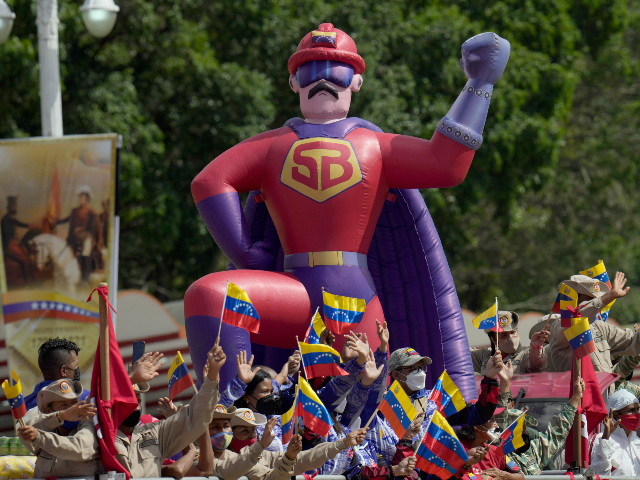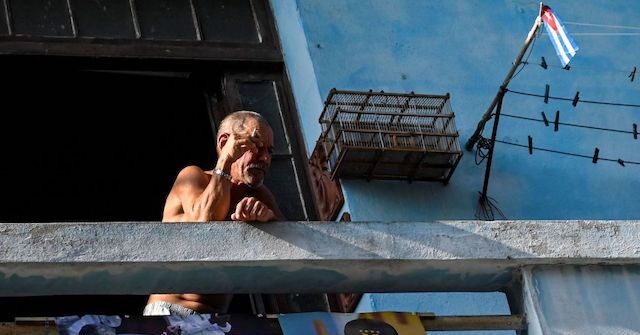The authoritarian regimes of Cuba, Venezuela, and Nicaragua have spent extensive efforts to diminish or outright erase the significance of their countries’ national independence days, crafting unpopular communist replacements for the anniversaries.
Of the three countries, the most egregious case is that of Cuba’s communist regime, presently led by nonagenarian dictator Raúl Castro, who succeeded his late murderous brother Fidel in the mid 2000s.
Following years of conflict and political turmoil, Cuba successfully seceded from Spanish rule and attained its independence on May 20, 1902, with minimal aid from the United States. The Castro regime, which took power in a coup in 1959, has strictly banned Cubans from celebrating their own national holiday and brutally persecuted those who do. The communist regime has instead replaced May 20 with a mandatory celebration on July 26 to “commemorate” Fidel Castro’s 1953 terrorist attack on the Moncada military garrison in Santiago de Cuba, which marked the first of many massacres led by the late communist dictator. Then-leader Fulgenio Batista ultimately pardoned Fidel Castro, leading to the former’s demise.
Flags of Cuba an 26th July movement are seen during an act to honor late Fidel Castro at Habana University on November 26, 2017, in Havana, Cuba. Fidel Castro died on November 25, 2016 in Havana, Cuba. (Photo by Ernesto Mastracusa/Getty Images)
Although the observance of May 20 is banned on Cuban territory, the national independence day lives on through the Cuban diaspora in the United States and around the world, who continue to celebrate the historic day with festive joy.
“This Cuban Independence Day, we honor the courageous patriots who broke free from Spanish colonial rule to heroically embrace the eternal values of liberty, sovereignty, and human dignity, President Donald Trump wrote on May 20. “My Administration offers its heartfelt support to the people of Cuba as they once again seek to secure their God-given rights—and we recommit to assisting them in their righteous pursuit of self-government.”
In Venezuela, the socialist regime established in 1999 by late dictator Hugo Chávez and now led by his chosen successor Nicolás Maduro took a different approach than the one taken by the Castro regime, its ideological mentor.
Rather than replace Venezuela’s independence day and other important national holidays, the regime co-opted the history of the over 200-year-old Venezuelan independence movement and the names of its historic figures for its own agenda. It has most prominently hijacked the memory of founding father Simón Bolívar, given his important role in the liberation of not just Venezuela, but several other countries in the region such as Colombia, Ecuador, Peru, and Bolivia, the latter of which was named after him. Chávez used Bolívar’s name for his socialist “Bolivarian Revolution” and would then have his regime claim that Bolívar was a “socialist,” as he did with Jesus Christ.
Venezuela formally obtained its independence from Spanish rule on July 5, 1811, the day when a group of men gathered in Caracas signed the country’s declaration of independence, formally establishing what was known as the First Republic of Venezuela. The Venezuelan war for independence nevertheless continued in the following years, culminating with the Battle of Carabobo on June 24, 1821.
While Venezuelans still observe July 5, the Maduro regime has distorted the meaning of the holiday. Maduro often used the occasion to deliver a speech during a yearly military parade in Caracas in which he focused on vitriol against the revolution’s “enemies” such as the United States and local dissidents. The traditional military parade has also featured new unrelated additions such as Maduro’s cartoon superhero alter-ego Súper Bigote (“Super Muscache”), Iranian drones, and motorcycle stunts — an activity that Maduro declared as a national sport last year.

A float with local militia and a blow up doll of the character Super Bigote, in the likeness Venezuelan President Nicolas Maduro, participates in the parade marking Independence Day in Caracas, Venezuela, Tuesday, July 5, 2022. (AP Photo/Ariana Cubillos)
Although the Maduro regime has not replaced Venezuela’s national holidays, it has nevertheless imposed socialist fabrications such as December 8, 2012, the “Day of Love and Loyalty to Commander Chávez,” to mark the late dictator’s last public address. Chávez officially died from an undisclosed type of cancer on March 5, 2013, though he remains informally the head of state of Venezuela. Chávez is posthumously referred to as the “Supreme and Eternal Commander of the Revolution.”
In Nicaragua, the communist regime led by “co-president” husband-and-wife dictatorial couple Daniel Ortega and Rosario Murillo still observes September 15 as the country’s national independence day, the date when the Central American nation broke free from Spanish rule in 1821.
However, this occasion is also not marked with references to the actual history of the day. Instead, Ortega often gives extended speeches ranting against the United States, threatening dissidents with a lifetime in prison, and condemning both capitalism and the Catholic Church. The Ortega regime has distorted Nicaraguan national identity by elevating the flag of the Sandinista National Liberation Front (FSLN) to the same status as the Nicaraguan national flag. The regime recently modified the Nicaraguan constitution to include the FSLN flag among the country’s national symbols, effectively granting it the same status as the national anthem, flag, and coat of arms. Public institutions, schools, and universities are now forced to hoist the red and black FSLN Sandinista flag next to Nicaragua’s blue and white national flag.
Supporters of the Sandinista National Liberation Front (FSLN) take part in a caravan in Managua, on July 19, 2020 during the 41st anniversary of the Sandinista Revolution, held without a public event due to the COVID-19 pandemic. (NTI OCON/AFP via Getty Images)
The Ortega regime has also extensively modified the country’s national holiday calendar, implementing at least 24 regime festive days, codifying them into law and therefore forcing schools and public institutions to celebrate them with rallies and other activities. Some of the new holidays include seemingly apolitical ones such as “Grandparents’ Day,” but others seek to impose the communist regime’s ideology such as “National Flag Day,” used to honor the FSLN flag.
Other regime-imposed holidays reportedly include December 12, which celebrates Nicaragua’s “friendship with Russia;” January 11, which celebrates the regime’s friendship with Venezuela; and April 17, in which the regime celebrates the country’s friendship with Cuba. According to the Nicaraguan newspaper Confidencial, the Ortega regime still marks June 16 to celebrate Nicaragua’s friendship with Taiwan even though the communist regime broke ties with Taiwan when it embraced China and its “One China Policy” in recent years.
Confidencial also stressed that some of the made-up holidays aim to “erase” the historic April 2018 wave of anti-communist protests, which Ortega responded to with a brutal repression that left more than 300 dead. In 2024, Ortega had April declared as the “month of peace,” a designation that was changed this year to “April, People who Defend Peace.”
Christian K. Caruzo is a Venezuelan writer and documents life under socialism. You can follow him on Twitter here.
Read the full article here


